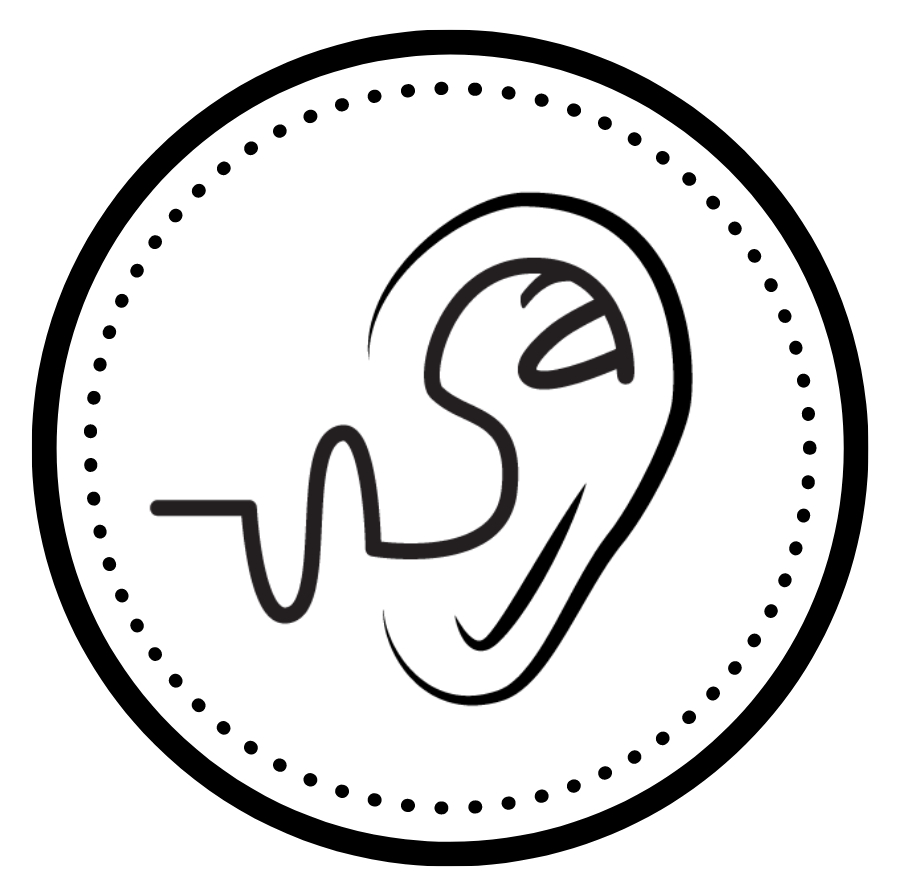So you want to be an audiologist? Good choice! The field of audiology is always evolving and growing. Pursuing a career in audiology can also provide a good work-life balance depending on what type of setting you practice in.
With fall just around the corner, students are gearing up to go back to school. College seniors who have thought long and hard about pursuing audiology or speech language pathology (or both?!) are looking into graduate program applications. Or, perhaps you’ve decided that this is the year to switch careers. This post will focus on what I wish I knew when I was applying for audiology graduate programs.
Read along to find out how my advice can help you during your application process!
#1 Location of the school matters. Understanding the program logistics matters.
-
Urban vs. rural city
Consider the commute times and mode(s) of transportation available to get to your off-site clinical rotations. Some sites may be an hour (or more) away from school. Some sites may be located within 15-30 minutes from each other. How will you get from point A to point B if you don’t have access to a car?
I attended a program in the city because I wanted to avoid commutes longer than 30 minutes. I knew that sitting in traffic and travelling long distances would deplete my limited energy as a student, so I made sure to research and ask questions about possible clinical site placements. In grad school, your schedule will be jam packed with classes, part time work, appointments, and clinicals, so it’s important to factor in your commute times from one location to another.
Also, programs located in larger, urban areas have more social events/activities available for when you’re trying to unwind. You can’t possibly want to study 24/7, so why not check out the new rock climbing gym down the street? Programs in rural cities can be fun because of the close-knit community that you can be part of. There’s nothing better than hanging out at the same, local bowling alley every Friday night with your usual crew.
-
Prestige/Ranking of the program
Every year, U.S. News publishes a report of how various audiology programs rank based on peer institution assessments. How cool would it be to attend the BEST program in the field? What is the audiology equivalent to Yale Law School? Vanderbilt University has ranked first for as long as I can remember. But honestly, rankings don’t matter when you’re applying for a job.
There are approximately 75 accredited audiology programs in the United States. Undergoing the accreditation process indicates that each program’s curriculum and protocols have been extensively reviewed. Accredited programs have demonstrated that they meet the Council on Academic Accreditation standards to properly train audiology professionals for clinical practice.
So sure, it’s nice to attend a school that is well known to the general public and it doesn’t hurt to have that listed on your resume. I’ll admit that it worked out for me. However, it’s important that you assess the cost-benefit analysis of attending a program for prestige. Every educational institution trains their student clinicians in different ways by providing them with unique opportunities to grow.
Landing a job after graduation is going to be based on how you portray yourself as an asset, rather than what school you graduated from. The only thing that matters is your confidence about whether you would be a good fit for the programs you apply for.
-
Safety on and off campus
Talk to current students about available safety resources (e.g. night shuttles) on campus. Some programs are situated in compact college towns, while other programs are situated in more remote areas and may be less walkable from campus to your apartment/house.
As a student, one of the last things you want to worry about is your safety on campus. You are tired 99% of the time, so it gives you peace of mind if you know that surrounding neighborhoods have a low crime rate. Especially for those late night study sessions.
-
Diversity of clinical settings
Exposure to a variety of populations and clinical settings is important as your experiences will prepare you to become an independent clinician. It will also help you narrow down which settings you want to work in when you kickstart your career.
I am grateful that I had the opportunity to rotate through various settings: ENT/private clinics, major hospitals, educational audiology clinics, and military-based clinics. Every setting has its pros and cons, but it ultimately helped me to develop tools for how to interact with different populations and adapt to different protocols.
-
Size of cohort
What’s the ratio of faculty members to students? Remember that you are paying a lot of money to continue your education, so make sure your program has resources to support you if you ever feel like you’re struggling.
If you attend a program with a large cohort of students (class size of 15 or more), how diverse will your clinical experience and placements be? As a member of a larger cohort, perhaps you will have the opportunity to connect with more classmates and find the perfect study partner(s). Smaller cohorts are nice if you crave for easier access to speak with professors and faculty.
My class consisted of 12 students and it was the perfect size for me. I learned that there are some classmates that you get along with better than others, but that didn’t stop us from learning from each other. Professor office hours were available and we had teacher assistants (students from cohorts above our year) who played a huge role in helping us understand the material. All in all, consider what kind of learning environment you think you can succeed in and how your peers can support you.
#2 Evaluate and reassess your passion for audiology
Can you truly see yourself practicing as an audiologist for the rest of your career? Your personal statement or letter of intent is THE biggest component of your application. Apply to grad school with a purpose to attain your end goal. Be clear in your personal statement that you’ve done your research. Be clear about your passion to help people cope with hearing loss.
I spent hours upon hours writing and editing my personal statement. I wrote about how I became fascinated with audiology and what I could contribute to the field. Audiology is a smaller niche field and I highlighted my shadowing experiences to share the influences I had to realize that becoming an audiologist was the right career for me. Getting an Au.D. prepares you to be an audiologist and not any other general health care provider. Be certain that you are prepared to commit to this awesome, very specialized field.
#3 Know the cost of getting an Au.D. degree
Do not overlook ALL the expenses related to getting an Au.D.: living, food, car maintenance, healthcare, moving, tuition, books, supplies, lab fees, etc. The list goes on. Schools will nickel and dime students for all sorts of random fees, so do your research about how much debt you will be accumulating in order to get your doctorate degree. How much is it worth to you?
I’m a huge fan of spreadsheets and I always budgeted for the upcoming school year during the spring. This is around the time when I would receive my financial aid/loan approval information. It takes me a couple hours to calculate the amount of loans I would need to borrow, but doing so up front saved me a lot of time and hassle during the school year. How to pay for graduate school is a hot topic, and I plan to discuss my experience in future posts.
The key is to be organized and always, always, always be mindful of the fact that loans come with dangerous terms and conditions. Scholarships are available, so apply for as many as you can. Do your research and mentally prepare yourself to accept financial responsibility for your own education.
If you have significant funding assistance from family or from a money tree (like the one I’ve been waiting years to sprout), consider yourself lucky because you can ignore this tip.
#4 Prepare to ask for letters of recommendation
Plan to ask 3-4 professors, mentors, advisors, or any person who can vouch for your ability to succeed in graduate school. It is not a good idea to ask your parents or easily identifiable relatives. Asking for letters of recommendation is a formality and this practice will not go away… ever. You will want to reach out to individuals who can write an authentic letter for you and not a cut and paste, generic letter.
I remember being afraid to ask a couple of my professors to write letters for me because I felt like they didn’t know me well enough. Forging relationships is a process and it is important to reach out to them through email or in-person office hours to show your dedication to learn more. The more you interact with professors, the more likely they can understand you as a student and support your goal of getting into grad school.
Do not be afraid to ask for letters of recommendation because it is part of the cycle of giving and receiving. Professionals write letters for other professionals all the time. One day, you will be in a position where you will have to return the favor of writing a letter for a budding professional. It doesn’t hurt to ask and if they seem hesitant about writing a good letter of recommendation for you, consider asking someone else.
#5 Take the GRE seriously, but not too seriously
Look, you might be stressing about whether or not your average Graduate Record Examination (GRE) scores are “good” enough for certain programs. In all honesty, your scores may not matter as much as you think as long as other components of your application are strong. As you research programs, look at previous admitting class data. Compare your scores and GPA to see if they fall within the posted ranges. Not everyone is good at taking standardized tests and admission panels know that.
Some programs may have minimum expected scores to be considered a “competitive candidate”. However, your numbers are unlikely to make or break your application from being reviewed. Programs select candidates that they believe are passionately prepared for the rigors of graduate school and will complete the program in a timely manner. Your GRE scores are only representative of how well you perform on a standardized test for math, verbal, and analytical writing sections. And let’s be real – you will never have to calculate the angle of x in a parallelogram or complete blanks of text in a given passage in audiology grad school.
I took the GRE twice because I thought my first set of scores weren’t good enough. My scores had put me at the peak of the bell curve. Just average. I have test anxiety, especially in unfamiliar environments. My fingers were finicky. My hands were trembling all throughout testing. So I signed up to take the GRE again. I managed to score higher by 5 points in one section the second time around. Did the extra 5 points make much of a difference for my application? Probably not. In hindsight, I could’ve saved time and money had I just gone ahead with my first results.
Bottom line, study the GRE test format and take a couple practice tests to familiarize yourself with the type of questions. Take the exam and try to score at least within average range. If you don’t get into any programs and you feel that your numbers are the only components holding you back, then retake the GRE again before the next application cycle. Be sure to ask professionals within the field to review your personal statement and the rest of your application for improvements.
#6 Length of program
Consider the pros and cons of a 3 year vs. 4 year program. Due to the consolidated nature of a 3 year program, the first year is heavily focused on didactic courses with minimal clinical experience until your second year. On the other hand, you won’t have to pay for an extra year of tuition. Look at each program’s course curriculum to get a better idea of what to expect.
For me, attending a 3 year program was appealing at first. This was a relatively new concept with only 1-2 existing programs offering an Au.D. within a 3 year time frame at the time I was applying. More programs have popped up offering a condensed timeline since then and students have graduated from them to become successful audiologists.
My personal experience with attending a 4 year program is that the longer duration helped me build my confidence as an independent clinician. I didn’t feel like any portion of my program was rushed or ‘glossed over’. I was in the clinic seeing patients within the first week of starting the program. This allowed me to directly apply what I was learning in classes to guide my patients through their appointments. My capstone project was carefully selected. I had time to run subjects, collect and analyze data, all while learning the extensive process of conducting research. I do not regret attending a 4 year program because I had plenty of time and opportunity to soak up all that knowledge.
Consider what kind of learner you are when you make this decision. Think about what your priorities are in choosing to attend a 3 year vs. 4 year audiology graduate program.
#7 Interest in research – yay or nay?
If yay, consider a dual degree program at a school with a strong research program. Only a handful of programs offer the option of obtaining an Au.D/Ph.D. dual degree, so look into them if a career in research is your thing. Developing research is crucial to the advancement of science and our field as a whole, so it can be very satisfying to contribute new data to the community.
It is also ok if research is not your main interest. The majority of programs offer a Clinical Doctorate in Audiology. There is no expectation for you to be a part of a hefty research project as a graduate student unless that’s what you want. Having a background in research is helpful for following best practices, so keep that in mind even if you have zero interest in getting a Ph.D.
#8 Embrace your support system
Looking back, I would not have gotten through the program without support from my family and friends. If you can manage the journey alone, kudos to you. It’s definitely easier when you have people to connect with (e.g. vent about masking equations and how to mask properly, freak out about clinical comp exams). If you don’t have a great support system to start, perhaps you will find that with your classmates and graduate program community. Surround yourself with positive people who will celebrate with you after every milestone, whether it be a presentation, a paper, or your capstone project.
Getting through grad school is like running a marathon. You’ve spent years preparing your body and brain to take on the rigors of grad school. There will be moments where you have really good momentum to power through an assignment in one sitting. And then there will be moments where you need to slow down your pace to process everything. No matter what you’re going through, you are the runner who has to do whatever it takes to cross the finish line. Hopefully you have a strong, loving group of people cheering you on along the way and at the very end (aka graduation day!).
Note: I applied for audiology programs during the 2013-2014 application cycle. Despite this detail, I hope you find my advice to be timeless.
I’ve compiled a list of resources to help you kick start your audiology program research.
Download my free organization tool to help you keep track of all the details, deadlines, and programs you’re applying for.
Best of luck with your applications!





Dr. Janice, Thank you for your article. This is exactly what I was needing right now. I have my applications started. So many of the questions running thru my mind were addressed here. I’m so excited for the future and this truly is an amazing field to pursue.
I’m so glad you found my article to be helpful, Michelle! Best of luck to you with this application cycle 🙂
Thank you Doctor
I also have a great passion for audiology as career. I will be glad if you can recommend me the best country to study masters in audiology